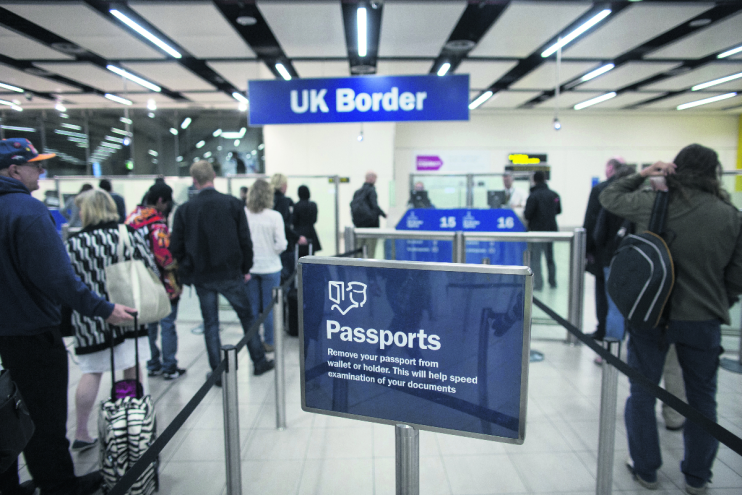Migrant partners are harming the UK’s finances, according to a new government-commissioned report. The Migration Advisory Committee (MAC) has warned that those entering the UK on partner or family visas are likely to remain a long-term burden on public services, including the NHS, and offer little economic benefit.
In its review, the MAC stated that most migrants on partner visas would be “fiscally negative” over their lifetimes. The income level of their sponsors—whether UK citizens or settled migrants—didn’t make much difference to this outcome. While wealthier sponsors were slightly more likely to have higher-earning partners, the link was too weak to change the overall financial picture.
According to the report, “A non-working, or very low-earning, partner visa applicant will have a negative impact on public finances regardless of whether the sponsor they are joining is earning £20,000 or £60,000.” Researchers added that using a sponsor’s income to predict the financial contribution of a migrant partner is not reliable.
The report also examined how visa rules affect families and individual wellbeing. It raised concerns that raising the income threshold above £29,000 a year could breach international human rights laws, specifically Article 8 of the European Convention on Human Rights, which protects the right to family life. Proposals from the former government to raise the salary threshold to match skilled worker visa levels—currently £38,700—were questioned by the MAC.
Home Secretary Yvette Cooper had requested the MAC’s advice before making any changes to partner visa rules. The committee recommended that a more reasonable income threshold should fall between £23,000 and £25,000 to avoid forcing families into poverty.
A spokesperson from the Home Office said, “The Home Secretary commissioned the independent Migration Advisory Committee to undertake a review. We are now considering its findings and will respond in due course.” They also noted that the government plans to clarify how Article 8 of the ECHR applies in immigration decisions.
This report comes as the government tries to manage public spending ahead of the upcoming Spending Review. Last month, an immigration white paper suggested a need to reform the visa system to support economic growth while also reducing net migration.
The MAC’s findings could influence major shifts in the UK’s partner visa policies, with the government weighing financial concerns against legal and humanitarian obligations. As ministers seek ways to ease pressure on public services, partner visa rules may soon become even tougher.

